About Highland District Hospital – Behavioral Health
Highland District Hospital’s Behavioral Health unit is located on North High Street in Hillsboro, Ohio. They provide outpatient behavioral health services focused on areas including substance use disorders, anxiety, depression, trauma and other behavioral health issues.
Planning for Mental Health and Substance Use Disorders
Services offered include assessment, diagnosis, and individual treatment planning for a variety of mental health and substance use disorders. They also deliver individual, group, and family therapy sessions with available medication management in collaboration with psychiatric professionals.
Patient Assessment Determines Level of Care
Treatment programs are tailored based on patient assessment and typically address those dealing with both mental health and co-occurring substance use disorders. I noted that Highland District Hospital doesn’t offer inpatient or residential addiction rehabilitation as part of the services provided at the hospital.
Compassionate and Multidisciplinary Team Approach
Their multidisciplinary team approach is led by licensed counselors, social workers and psychiatric providers. It features a strong focus on your individualized care and confidentiality. I find it encouraging to learn that they’re committed to addressing the stigma associated with mental health and addiction.
Located within the Highland District Hospital, it features easy access to additional hospital services and amenities. They also offer comfortable waiting areas, onsite security and private and confidential outpatient therapy rooms.
Located near the heart of Hillsboro, Ohio, it provides you with a small community setting. They’re also located in close proximity to Hillsboro City Park and Liberty Park, which serve as calming and supportive environments for your outpatient care. It is also near Highland County District Library and Rocky Fork State Park.
Facility Overview
Latest Reviews
Rehab Score
Gallery

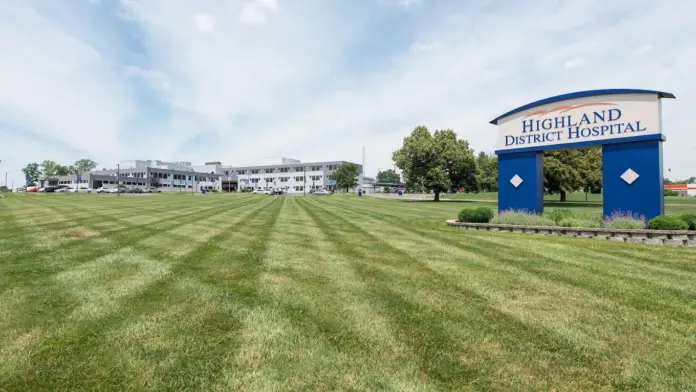
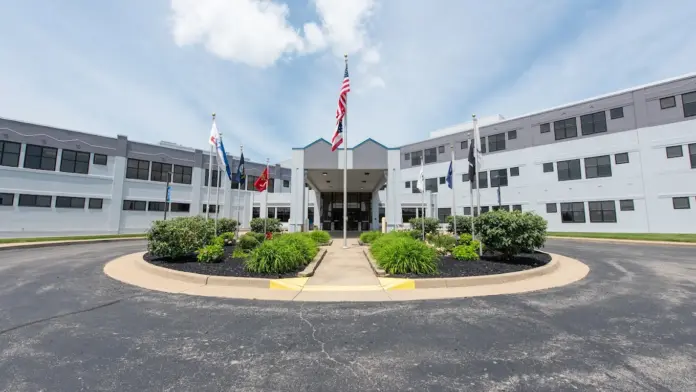
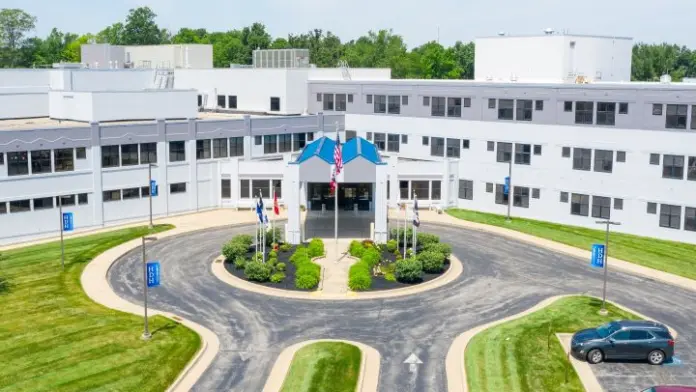
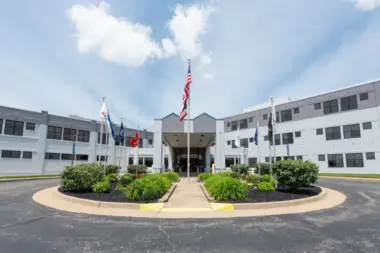

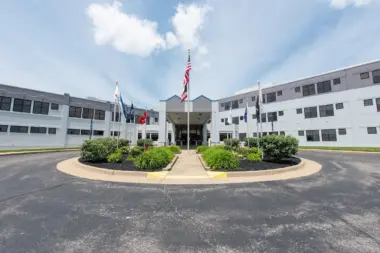

Other Forms of Payment
Medicaid is a state based program that helps lower-income individuals and families pay for healthcare. Medicaid covers addiction treatment so those enrolled can use their coverage to pay for rehab. When a program accepts Medicaid the client often pays very little or nothing out of their own pocket.
Private insurance refers to any kind of healthcare coverage that isn't from the state or federal government. This includes individual and family plans offered by an employer or purchased from the Insurance Marketplace. Every plan will have different requirements and out of pocket costs so be sure to get the full details before you start treatment.
Self-pay involves paying for treatment out of your own pocket. You can use savings or credit, get a personal loan, or receive help from family and friends to fund your treatment. If you don't have insurance or your insurance plan doesn't cover a specific program, self-pay can help ensure you still get the care you need.
Medicare is a federal program that provides health insurance for those 65 and older. It also serves people under 65 with chronic and disabling health challenges. To use Medicare for addiction treatment you need to find a program that accepts Medicare and is in network with your plan. Out of pocket costs and preauthorization requirements vary, so always check with your provider.
Addiction Treatments
Levels of Care
Residential treatment programs are those that offer housing and meals in addition to substance abuse treatment. Rehab facilities that offer residential treatment allow patients to focus solely on recovery, in an environment totally separate from their lives. Some rehab centers specialize in short-term residential treatment (a few days to a week or two), while others solely provide treatment on a long-term basis (several weeks to months). Some offer both, and tailor treatment to the patient's individual requirements.
Treatments
Many of those suffering from addiction also suffer from mental or emotional illnesses like schizophrenia, bipolar disorder, depression, or anxiety disorders. Rehab and other substance abuse facilities treating those with a dual diagnosis or co-occurring disorder administer psychiatric treatment to address the person's mental health issue in addition to drug and alcohol rehabilitation.
Mental health rehabs focus on helping individuals recover from mental illnesses like bipolar disorder, clinical depression, anxiety disorders, schizophrenia, and more. Mental health professionals at these facilities are trained to understand and treat mental health issues, both in individual and group settings.
Programs
Recovery is most successful when clients feel accepted and validated by their peers and treatment providers. Facilities that offer LGBTQ-inclusive programming are committed to creating a safe space where everyone can grow and recover without fear of judgment or discrimination. They will have dedicated policies in place to create a safe and supportive environment that fosters free expression.
Clinical Services
Cognitive Behavioral Therapy (CBT) is a therapy modality that focuses on the relationship between one's thoughts, feelings, and behaviors. It is used to establish and allow for healthy responses to thoughts and feelings (instead of unhealthy responses, like using drugs or alcohol). CBT has been proven effective for recovering addicts of all kinds, and is used to strengthen a patient's own self-awareness and ability to self-regulate. CBT allows individuals to monitor their own emotional state, become more adept at communicating with others, and manage stress without needing to engage in substance abuse.
Experiential therapy is a form of therapy in which clients are encouraged to surface and work through subconscious issues by engaging in real-time experiences. Experiential therapy departs from traditional talk therapy by involving the body, and having clients engage in activities, movements, and physical and emotional expression. This can involve role-play or using props (which can include other people). Experiential therapy can help people process trauma, memories, and emotion quickly, deeply, and in a lasting fashion, leading to substantial and impactful healing.
Group therapy is any therapeutic work that happens in a group (not one-on-one). There are a number of different group therapy modalities, including support groups, experiential therapy, psycho-education, and more. Group therapy involves treatment as well as processing interaction between group members.
Nicotine Replacement Therapy (NRT) is a way of getting nicotine into the bloodstream without smoking. It uses products that supply low doses of nicotine to help people stop smoking. The goal of therapy is to cut down on cravings for nicotine and ease the symptoms of nicotine withdrawal.
Nutrition therapy, aka medical nutrition therapy (MNT), is a way of treating physical, emotional, and medical conditions through diet. Specific dietary plans are designed by professional nutritionists or registered dietitians, and patients follow them in order to positively affect their physical and mental health.
Trauma therapy addresses traumatic incidents from a client's past that are likely affecting their present-day experience. Trauma is often one of the primary triggers and potential causes of addiction, and can stem from child sexual abuse, domestic violence, having a parent with a mental illness, losing one or both parents at a young age, teenage or adult sexual assault, or any number of other factors. The purpose of trauma therapy is to allow a patient to process trauma and move through and past it, with the help of trained and compassionate mental health professionals.
Staff

Tim Parry
President & CEO

Eddy Maillot
VP of Operations & COO

Meghann Ackley
VP of Finance & CFO

Amanda Knauff
Director of Human Resources

Tim Bogard
Director of Information Systems

Cathy Faulconer
Director of Nursing
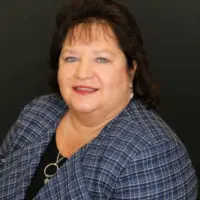
Connie Lewis
Director of Patient Financial Services

Rebecca Short
Director of Performance Improvement & Corporate Compliance
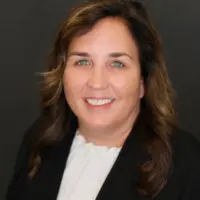
Amy Justice
Director of Physician Services

Brad Storts
Director of Professional Services

Arthur Tokar
Director of Support Services
Contact Information
1275 North High Street
Hillsboro, OH 45133